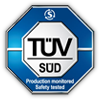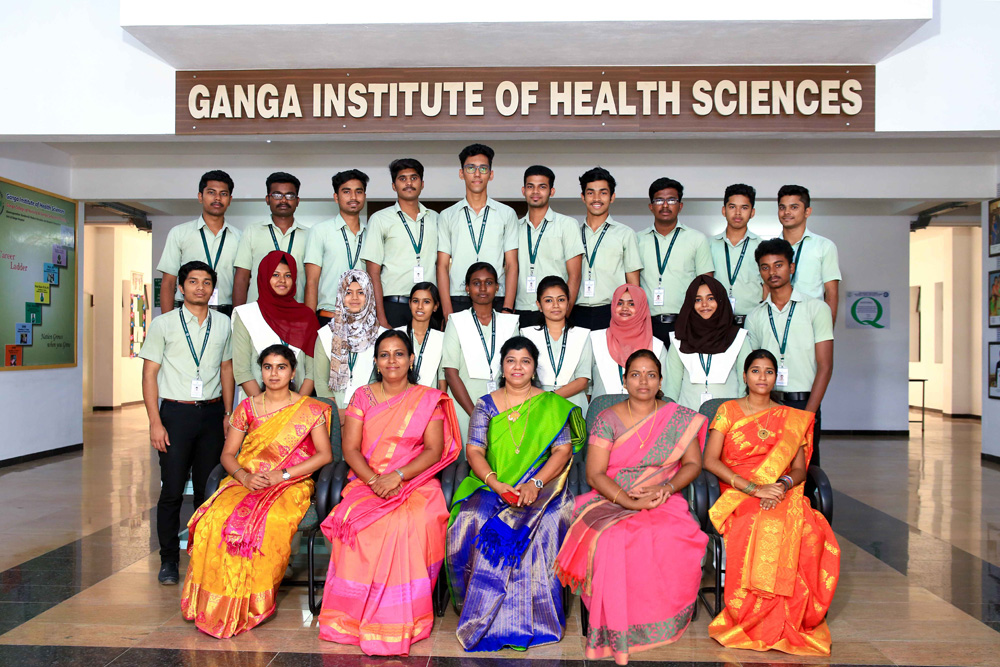B.Sc Radiography And Imaging Technology
4 Years 17 - 35 YearsB.Sc. Radiography and imaging technology course is designed to enable students to enhance their scientific knowledge and skill to produce clear and accurate images of the body that enable physicians to diagnose and treat medical conditions. Radiology and imaging technologist operate sophisticated equipment including X-Ray, CT scan, MRI scan, Mammography and fluoroscopic C-arms . They play important role in updating patient records and maintaining the imaging equipments
DURATION
B.Sc. Radiology and Imaging technology is 4 years (3 years of academic and clinical practice and 1 year of internship programme in various diagnostic centres) under graduate course which prepares the students to use different types of sophisticated imaging equipment and take the professional certification exam required for most jobs in this field.
EDUCATIONAL QUALIFICATION:
Candidate must have passed HSC/CBSE/ISCE in subjects of Physics, Chemistry, Biology/Botany and Zoology and English individually.
AFFLIATION BODIES
B.Sc. Radiology and Imaging technology course is affiliated by DR.M.G.R MEDICAL .UNIVERSITY which is approved by AERB(Atomic Energy Regulatory Board) for Radiology and Imaging technology course. HOW IS B.SC.RADIOLOGY AND IMAGING TECHNOLOGY COURSE BENEFICIAL?
This program provides students with a diversified plan of study in advanced imaging(CT&MRI),health care management and technical support knowledge(PACS AND QM)
It also gives them general studies in a balanced curriculum to prepare them for advancement in multiple career roles or continuation to graduate studies.
They can go for further degrees after its successful passing and then for research work.
HIGHLIGHTS OF TRAINING
- X-Rays
- Patient positioning
- Digital Image Analysis
- Radiation Protection
- Diagnostic Tests
- Nuclear imaging
- Quality radiation
CAREER IN RADIOGRAPHY
Radiography is one of the most promising career options in the paramedical field. Employment prospects for radiographers are good, both within the country and overseas. With health services increasing leaps and bounds, radiographers are constantly in demand in nursing homes, hospitals, diagnostic centres as well as super-speciality hospitals.
In India, radiographers can work both in private & government hospitals. Jobs are available on part time and full-time work.
A career in radiography can be very promising. The demand for radiographers has increased considerably in recent times, with significant technological development in medical sciences creating new job oppurtunities. RADIATION PROTECTION FOR THE STUDENTS
Personal radiation dose monitor called TLD (Thermo Luminescent Dosimeter) is provided to all the students to monitor the radiation dose of each and also the lifetime cumulative dose report is maintained for every individual to protect from hazards of radiation.
RADIATION PROTECTION FOR THE STUDENTS
Personal radiation dose monitor called TLD (Thermo Luminescent Dosimeter) is provided to all the students to monitor the radiation dose of each and also the lifetime cumulative dose report is maintained for every individual to protect from hazards of radiation.
AREAS OF PRACTICE
- X-Rays
- CT Scan
- MRI Scan
- Mammography
- Fluoroscopic C-Arms
- Nuclear Imaging Techniques
- Ultrasonography
- Cath- Lab
- Dental Radiography
- BMD
- All Kinds of Radiographic Procedures.
OTHER EMPLOYMENT AREAS
- Radiology clinics
- Diagnostic centres
- Multispeciality hospitals
- Medical equipments and devices companies
AREAS OF JOB OPPORTUNITIES
- Medical advisor
- Lead medical image analysis scientist
- Marketing executive
- Key account manager
- Xray technologist
- Radiographer
- Area sales manager
- Radiation safety officer (RSO)
MEMBERSHIP
After completion of the course, they can get membership in professional associations which will enhance their professional identity and to enable job placement in India as well as overseas.Names of the associations as follows,
SIR-Society of Indian radiographers
ISRT-Indian society of radiographers and technologists
IART-Indian association of radiological technologists.
Eligibility for Under Graduate AHS programmes
Candidates belonging to all categories for admission to the Allied Health Sciences should have passed the qualifying examinations after period of 12 years of study with English, Physics, Chemistry, Biology / Botany & Zoology with minimum 50% marks in each subjects (Academic / Vocational Stream).
Duration of the course
4 years
Intake
20 students
Affiliation:
The Tamilnadu Dr.MGR Medical University, Chennai






